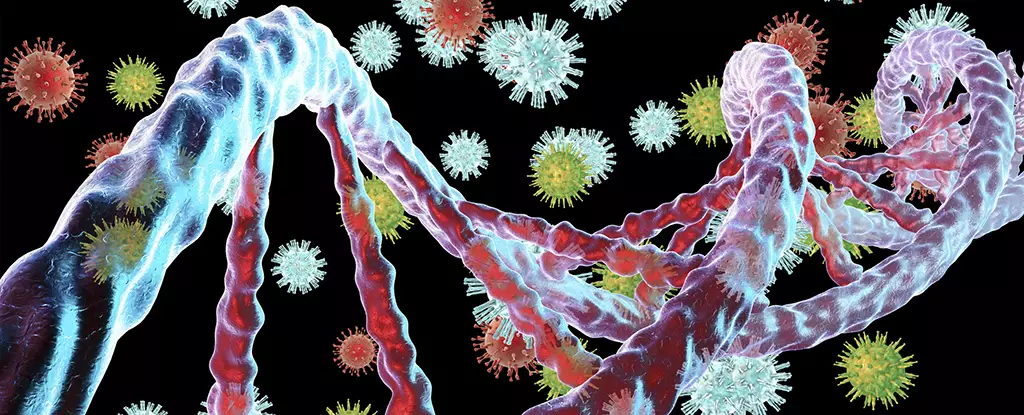Recent research led by Queen Mary University of London evolutionary biologist Alex de Mendoza Soler has uncovered the remnants of genomes left by ancient, giant viruses within the DNA of a single-celled organism. This organism, closely related to animals, sheds light on the potential role viruses may have played in the evolution of complex organisms.
The study reveals that the single-celled organism, Amoebidium appalachense, has developed a mechanism to cope with the insertion of viral DNA into its genome. By modifying one of the four DNA letters with 5-methylcytosine (5mC), the organism can silence these foreign genes using an enzyme called DNMT1. This unique process allows the organism to survive the viral onslaught and even incorporate some of the viral genetic material into its own lineage.
The Relationship Between Viruses and Hosts
Traditionally, viruses have been viewed as invaders that cause harm to their hosts. However, this research challenges that notion by suggesting a more complex relationship between viruses and their hosts. The findings propose that viral insertions may have actually played a role in the evolution of complex organisms by providing them with new genes.
Implications for Evolution
The study of Amoebidium appalachense and its interactions with ancient viruses may have broader implications for our understanding of evolution. By examining the genomes of various isolated Amoebidia, researchers found a high level of diversity across the viral material, indicating an ongoing and dynamic process of genetic exchange. This phenomenon may help us better comprehend similar interactions happening within our own bodies, as humans and other mammals also carry remnants of ancient viruses in their DNA.
These ancient viral remnants, known as endogenous retroviruses, were once thought to be inactive remnants of failed viral invasions. However, it is now believed that many of these viral elements may have provided some benefit to the host organism, leading to their preservation in the genome. This new perspective challenges our previous assumptions about the role of viruses in evolution and highlights the intricate interplay between viruses and their hosts.
The discovery of ancient viral genomes within the DNA of a single-celled organism opens up new avenues of research into the role of viruses in evolution. By understanding how these interactions shape genetic diversity and adaptation, we can gain valuable insights into the complex and dynamic nature of evolutionary processes.


Leave a Reply